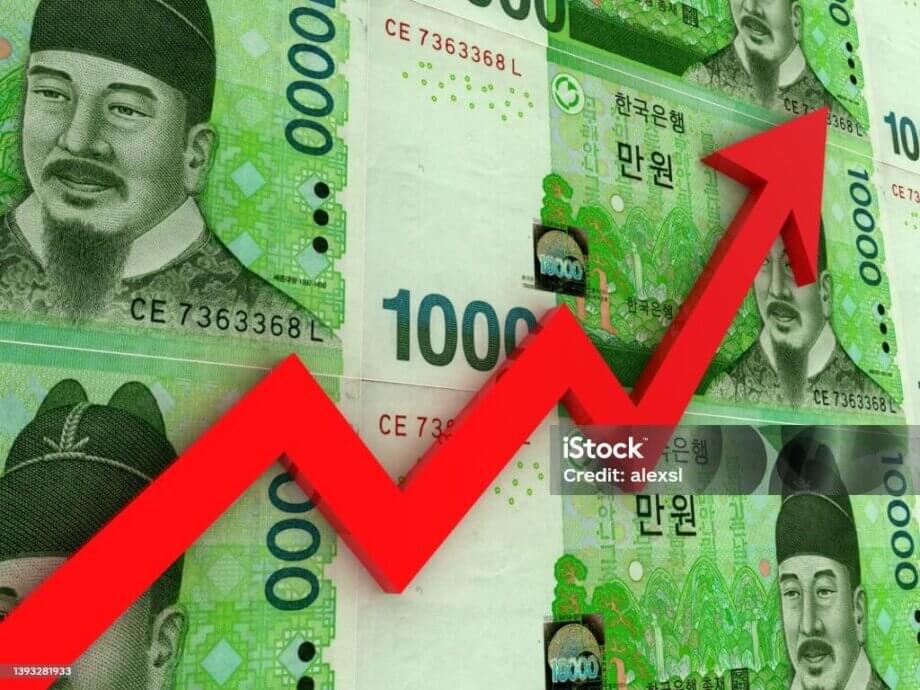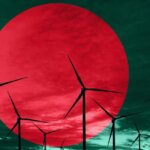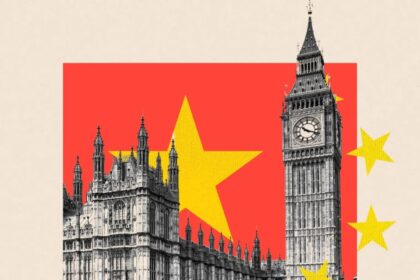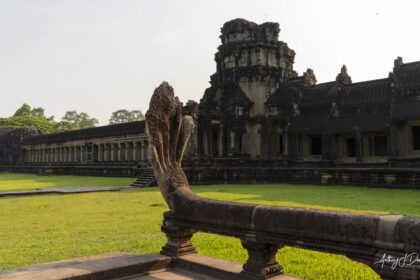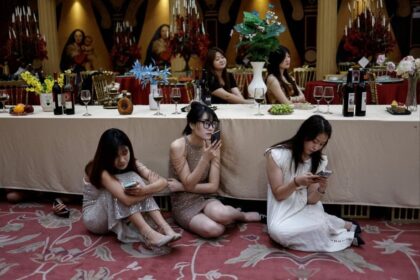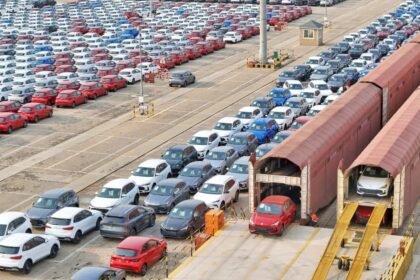A High-Stakes Economic Experiment
In a bold and contentious move, South Korean President Lee Jae Myung’s administration has greenlit a massive 15.2 trillion won ($11 billion) stimulus package designed to put cash directly into the hands of every citizen. The plan, approved by the Cabinet on Thursday, aims to jolt the nation’s sluggish economy by boosting consumer spending through a universal handout of cash-equivalent vouchers. This decision, coming just hours after President Lee’s return from a trip to Canada, represents the culmination of a policy vision he has championed for over a decade, but it also ignites a fierce political and economic debate over its wisdom and potential consequences.
- A High-Stakes Economic Experiment
- The Anatomy of the Proposal: Who Gets What?
- President Lee’s Rationale: A Cure for Economic Malaise
- A Long-Held Vision: The Political History of Lee Jae-myung’s Basic Income Push
- The Storm of Controversy: Populism, Inflation, and Economic Prudence
- Precedent and Alternatives: Lessons from the Past and Other Models
- The Path Forward: A Political Showdown in the National Assembly
- In Summary
At the heart of the proposal is a direct payment system intended to provide immediate relief and stimulate local commerce. The government argues that with many small business owners teetering on the brink of collapse due to weak consumer demand, such a direct infusion is not just beneficial but necessary. However, the move has drawn sharp criticism from the conservative opposition, who label it a populist ploy to reward voters and warn of dire economic repercussions, including a spike in inflation. As the proposal heads to the National Assembly for a final vote, South Korea finds itself at a crossroads, weighing the promise of economic revival against the risks of fiscal imprudence in one of the most significant economic experiments in its recent history.
The Anatomy of the Proposal: Who Gets What?
The 15.2 trillion won cash grant is the centerpiece of a larger 30.5 trillion won ($22.1 billion) supplementary budget. The government’s goal is to inject capital directly into the economy, with Second Vice Finance Minister Lim Ki-keun estimating the plan could generate approximately 13 trillion won in new consumption. The payout is structured with a universal base and additional support for more vulnerable populations, ensuring every citizen receives a benefit while directing more significant aid to those who need it most.
The specific distribution of the cash-equivalent vouchers is tiered as follows:
- Universal Base Payout: Every South Korean citizen, regardless of age, gender, or income, will receive a baseline payment of at least 150,000 won.
- Support for the Most Vulnerable: Individuals classified as living in extreme poverty and unable to secure employment will be eligible for a larger sum of 400,000 won.
- Aid for the ‘Near Poor’: Those categorized in the “near poor” income bracket will receive 300,000 won.
- Broad-Based Additional Support: To further boost spending among the majority of the population, citizens in the bottom 90 percent of the income bracket will receive an additional 100,000 won.
A key question surrounding the plan is its applicability to the large foreign population residing in South Korea. A Finance Ministry official clarified the current stance, stating, “Foreigners are not currently included, but exceptions could be made through task force discussions. The specific recipients will be finalized through those discussions.” This leaves the door open for potential inclusion but underscores that the primary focus is on South Korean nationals.
The proposal will be submitted to the National Assembly for final approval on Monday, following scheduled talks between President Lee and leaders of the major political parties. With the ruling Democratic Party of Korea holding a comfortable majority, the bill’s passage is widely anticipated.
President Lee’s Rationale: A Cure for Economic Malaise
For President Lee Jae Myung, this universal cash grant is not a radical new idea but the application of a long-held economic philosophy on a national scale. He argues that in an era of low growth and widening inequality, traditional supply-side economics is insufficient. Instead, he believes the government’s role is to directly enhance the spending power of its citizens to create a virtuous cycle of consumption and growth. During the Cabinet meeting, Lee articulated the urgency of the situation. He stated:
“Now is the time to use the state budget, given the gravity of the pain ordinary people are suffering.”
This sentiment reflects the administration’s view that the economic struggles of ordinary people and small business owners have reached a critical point that demands unconventional intervention. Lee further emphasized the principle of fairness inherent in a universal distribution model, arguing that the benefits of state spending should be widely shared. He added:
“If you spend money for some reason, I think the benefits should at least be enjoyed fairly by the people.”
This approach is rooted in his belief that a shortage of consumption demand is a central problem in modern economies. During a 2020 forum, while governor, he explained his thinking: “We have focused on supplying, but we are living in the era where increased supply does not guarantee a rise in consumer spending. Now, the government’s role should be focused on enhancing consumers’ spending capacity.” This cash handout is the ultimate expression of that philosophy, a direct attempt to put money into the pockets of consumers with the expectation that they will spend it, thereby revitalizing local economies from the ground up.
A Long-Held Vision: The Political History of Lee Jae-myung’s Basic Income Push
President Lee’s advocacy for direct cash payments is deeply rooted in his political career, long predating his presidency. What may seem like a sudden, large-scale policy move is actually the national implementation of ideas he has been developing and testing for more than a decade. Once dismissed by opponents as far-fetched and populist, his basic income experiments have steadily gained traction, moving from the municipal level to the provincial, and now, to the entire nation.
From Seongnam Mayor to Presidential Policy
The origins of this policy can be traced back to Lee’s tenure as the mayor of Seongnam, a city in Gyeonggi Province. About a decade ago, he introduced several progressive welfare programs, including providing free school uniforms, establishing free postpartum care services, and, most notably, introducing a basic income for young people. These plans were met with stiff resistance from the Gyeonggi provincial government at the time, leading to protracted legal battles. However, Lee’s political fortunes changed when he was elected governor of Gyeonggi Province in 2018, giving him a much larger platform to implement his vision.
The Gyeonggi Province Experiment
As governor, Lee launched the “Youth Basic Income” program in 2019, which became the world’s largest basic income experiment by sample size. Under this program, all 24-year-old residents of the province who met certain residency requirements received 250,000 won each quarter, totaling 1 million won per year, with no strings attached regarding employment or parental income. A crucial feature of this program was the use of “local currency,” a form of voucher that could only be spent at small, independent businesses within Gyeonggi Province, deliberately excluding large supermarkets and franchise stores. The goal was twofold: to provide a safety net for young adults and to ensure the stimulus money directly benefited local merchants. Surveys conducted by the Gyeonggi Research Institute found the program to be highly successful, with over 80% of recipients expressing satisfaction and a notable shift in consumer spending towards local shops, which reported significant sales increases.
The National Stage and Political Battles
Buoyed by the perceived success in Gyeonggi, Lee has consistently pushed for a national basic income policy. The COVID-19 pandemic provided a major catalyst, as the government’s one-off relief payments in 2020 received widespread public support and normalized the idea of direct cash transfers. As leader of the main opposition party in August 2024, Lee championed a 13 trillion won proposal to give every citizen 250,000 won. However, the bill was vehemently opposed by then-President Yoon Suk Yeol, who ultimately vetoed it. The parliament, lacking the votes to override the veto, saw the measure fail. Now, with Lee in the presidential office and his party in control of the legislature, the political dynamics have completely shifted, paving the way for the policy he has long envisioned.
The Storm of Controversy: Populism, Inflation, and Economic Prudence
Despite the government’s optimistic projections, the universal cash grant has unleashed a torrent of criticism from political opponents and economic experts who warn of significant negative consequences. The debate centers on accusations of political opportunism, the risk of stoking inflation, and fundamental questions about the efficacy of Universal Basic Income (UBI) as a policy tool.
Accusations of Populism
The most immediate and politically charged criticism comes from the conservative People Power Party. Their spokesperson, Ho Jun-seok, framed the handout as a political calculation rather than sound economic policy. In a statement, Ho said the scheme:
“sparks criticism that Lee was rewarding (voters) for the election victory.”
This sentiment was echoed by former President Yoon Suk Yeol during earlier debates on the matter, who called such plans “populist” and warned that “ill-advised cash handouts can jeopardize the future of this country.” President Lee has consistently pushed back against this characterization, arguing that addressing economic hardship is a core function of government, not a populist gimmick. “It’s not populism to salvage the economy,” Lee retorted earlier this year, framing his fiscal policies as an aggressive but necessary response to the economic challenges facing South Koreans.
The Inflationary Threat
Beyond the political rhetoric, economists have raised serious concerns about the proposal’s potential to fuel inflation. With a massive infusion of cash set to enter the economy, the fear is that a surge in demand could outstrip supply, driving up prices for everyday goods and services. Yoo Seong-min, a former lawmaker and economist, cautioned that “such a large infusion of cash would result in prices going up even further.” This concern is not new. During the 2020 debate over COVID-19 relief funds, Harvard University economics professor Robert Barro advised the South Korean government against universal payments. He argued that such policies are inefficient and that aid should be more focused. Barro stated:
“I think the cash transfers should be targeted on people who have lost jobs and income. The idea of transfers to everyone is wasteful because many people have not been hurt financially.”
Broader Critiques of Universal Basic Income (UBI)
The South Korean proposal taps into a global debate about the merits of UBI, a system that faces several structural criticisms. Experts point to a number of potential problems inherent in such programs:
- Enormous Cost: UBI programs are incredibly expensive, often requiring significant tax increases or deep cuts to other essential public services to be fiscally sustainable.
- Inefficient Targeting: By providing payments to everyone, including the wealthy, UBI is seen as a wasteful use of resources that could be more effectively targeted to those in genuine need.
- Weakening Work Incentives: A major concern is that an unconditional income could reduce the motivation for people to work, potentially shrinking the labor force and harming economic productivity.
- Incomplete Poverty Solution: While helpful, the payment levels in most feasible UBI plans are often not high enough to lift everyone out of poverty, yet they come at a colossal public expense.
These critiques form the bedrock of the opposition’s argument: that while the intention may be noble, the policy is a blunt and potentially damaging instrument for tackling complex economic problems.
Precedent and Alternatives: Lessons from the Past and Other Models
President Lee’s proposal does not exist in a vacuum. It follows a major, albeit different, cash handout program during the COVID-19 pandemic and enters a global conversation about the future of social welfare. Examining this history and alternative models provides crucial context for understanding the current plan’s potential trajectory.
The 2020 COVID-19 Relief
In May 2020, the administration of former President Moon Jae-in rolled out a large-scale cash coupon program to shore up an economy battered by the pandemic. However, a key difference distinguishes it from Lee’s current plan: the 2020 relief was targeted, not universal. Only households in the bottom 70 percent of the income bracket were eligible for the initial state subsidies. The payout amounts were based on household size: a single-person household received 400,000 won, while a household of four or more received 1 million won. Later, the Moon administration expanded support with additional vouchers for specific groups like freelancers and small business owners. This precedent demonstrates that while South Korea has experience with direct cash relief, the shift from a targeted to a universal model represents a significant ideological and practical departure.
Beyond UBI: Exploring Other Welfare Models
The global debate on social safety nets offers several alternatives to UBI. One such model gaining attention is “Participation Income” (PI), as proposed by British economist Anthony Atkinson. Like UBI, it provides a regular payment, but it is not unconditional. To receive the income, individuals are expected to contribute to society through approved activities such as care work, volunteering, education, or environmental restoration projects. Proponents argue that PI fosters a reciprocal relationship between the individual and the community, avoiding some of the potential downsides of UBI, such as social withdrawal or a decline in civic engagement. Other, more traditional alternatives focus on strengthening existing systems. For instance, some economists advocate for expanding programs like the Earned Income Tax Credit (EITC), which supplements the wages of low-income workers, thereby encouraging work while providing financial relief. These alternative models highlight that there are multiple paths to reducing poverty and inequality, each with its own set of trade-offs.
The Path Forward: A Political Showdown in the National Assembly
With Cabinet approval secured, the fate of the 15.2 trillion won cash grant now rests with the National Assembly. The legislative path forward appears relatively clear, given the current political landscape in Seoul. The ruling Democratic Party of Korea, led by President Lee, holds a commanding majority of 167 out of 298 seats. A budget bill requires a simple majority of lawmakers present to pass, meaning the administration has the numbers to push its signature policy through without needing support from the opposition.
Ahead of the formal vote scheduled for Monday, President Lee is set to hold talks with opposition leaders, including Kim Yong-tae, the interim leader of the People Power Party. While these discussions signal a procedural effort at consensus-building, they are unlikely to alter the fundamental outcome given the deep ideological divide on the issue. The proposal is part of a larger supplementary budget that also follows a recent 13.8 trillion won package aimed at disaster relief and mitigating economic uncertainties. This massive spending initiative will be added to South Korea’s confirmed 2025 annual budget of 673.3 trillion won, underscoring the significant fiscal commitment the government is undertaking. Barring any unexpected political developments, South Korea is on the verge of embarking on a nationwide economic experiment that will be closely watched both at home and abroad.
In Summary
- President Lee Jae Myung’s administration has approved a 15.2 trillion won ($11 billion) plan to give a universal cash handout to all South Korean citizens to stimulate the economy.
- The plan features a tiered system, providing a base payment of 150,000 won to everyone, with larger amounts of up to 400,000 won for low-income and vulnerable groups.
- This policy is the culmination of President Lee’s long-standing advocacy for basic income, which he previously tested with a “Youth Basic Income” program as governor of Gyeonggi Province.
- The proposal has ignited fierce controversy, with the opposition labeling it a populist measure to reward voters and economists warning it could trigger harmful inflation.
- Critics argue that universal payments are a wasteful and inefficient tool compared to targeted relief, a model used by the previous administration during the COVID-19 pandemic.
- With the ruling Democratic Party holding a strong majority in the National Assembly, the bill is expected to pass, setting the stage for a major test of basic income theory in a leading global economy.


